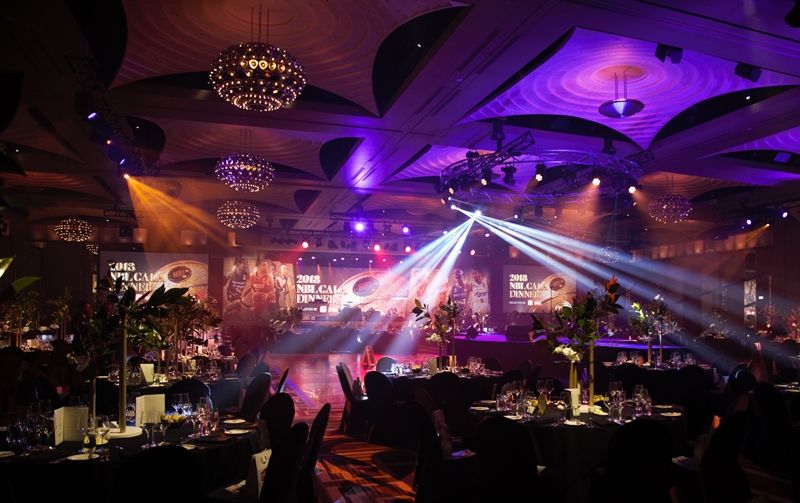A team is only as strong as its weakest member – especially where corporate event planning is concerned. It's vital that each member of your events committee brings a different skill to the table. ensuring a range of perspectives and critical eyes. From coordinators to stakeholder liaisons, here are the different roles you'll need to cover for a superstar corporate event committee.

Event coordinator
Although all of the roles on your committee are important, without precise and disciplined coordination your event plans may fall short of target. Enter the event coordinator, eyes and ears of the planning process. They oversee the key details for an event, including:
- Scoping out and choosing the best venue.
- Screening vendors.
- Hiring media production services.
- Monitoring the event budget.
An event coordinator needs to have strong organisational skills and a knack for multi-tasking. Furthermore, people in this role need to thrive under pressure. Even the best-laid plans can unravel in an instant – a fantastic event coordinator will have plans in place for all possible outcomes.
Event manager
If the coordinator is the driver of the event, the manager is the fuel that keeps things running. An event manager needs to be stay across all team members' tasks, understanding the what, why and when of all your event's moving parts. A hands-on and dynamic position, event managers need to be able to direct other members of the committee with authority and empathy.
An event manager is an essential role to have on the team. They not only understand the ins-and-outs of the event world, but have strong risk management skills, can foster strong individual engagement with the event, and monitor the health and safety requirements for both your venue and your team.

Program administrator
With corporate conferences in particular, it's crucial to stick to a stringent timetable in order for the event to run smoothly. Attendees expect a slick and professional event on the day – a strong program administrator makes this happen. This planning isn't restricted to the day of your event. From pre-planning to packing up, the program administrator is a logistical legend who know exactly who should be doing what and where, and how long tasks should take.
Duties of a program administrator include:
- Developing a timetable for your event, including the speaker schedule.
- Working with event staff to coordinate pack-in and pack-out procedures.
- Configuring seating arrangements and table placements.
Additionally, a program administrator will derive audience insights from key data before the event, ensuring that all speakers and activities on the event's program are relevant to their interests.
Artistic director
For all things visual, an artistic director has got it covered. From planning dynamic graphics to run alongside speakers to creating the colours and branding, they'll know exactly how to present your event in the best way possible. This includes drafting and finalising marketing collateral.
A major headache for those planning events is ensuring that the overarching theme or message isn't lost in translation. An artistic director will know exactly how to place and design different elements to integrate the theme into every touch point of your event.

Operations liaison
The muscle behind the event, operations liaisons handle the physical aspects of your function, whether they're physically doing the jobs themselves or leading their own team. This might include setting up chairs and tables on event day, or installing giant LED screens onstage.
An operations liaison seeks out extra hands where required, including media production experts. Even if an operations liaison lacks the technical know-how for a specific piece of technology, they can still advise production teams on event goals and what they expect from the services to ensure that everyone's on the same page by event day.
This role will also manage attendee-facing work, such as door control. An event can quickly go awry if there isn't any regulation of crowd flow, so your operations liaison will know exactly how to manage lines, numbers and disturbances.
A top-tier event management team has many moving parts and necessary areas of expertise – often more than companies have on hand. For a ready-made and highly experienced events team, look no further than CMS Australasia. We manage all aspects of event production, from videography and streaming to stage design. When you require professional expertise to set up and run your event from every possible angle, we're the ones who can make it happen.
We are dedicated to helping the dreams of our clients come to reality. For more information, get in touch with our team.

